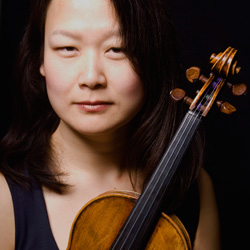|
On the even of his thirtieth birthday, Ludwig van Beethoven risked composing a string quartet for the first time. Essentially it was based on works by his older contemporary Joseph Haydn that he had studied and himself copied by hand. In line with tradition, this debut opus (No 18) contained six quartets. They were composed starting in 1798, and in 1800 they were fundamentally rewritten. The composer dedicated them to his benefactor Prince Lobkowitz.
Compared with other works by Beethoven of the time, the style of the quartets in Opus 18 is conservative: trying his hand at a new and complex genre, the composer displayed a certain caution. But in this approach to the sixth quartet he considered it possible to abandon this. In Quartet No 6 in B Flat Major the courage of the music grows from the first section to the last. The most original section is the finale, which opens with a slow, chromatic introduction entitled Melancholy. Mankind was then not yet familiar with the word “depression”, and sensitive souls easily found salvation from melancholy in a circle of friends as depicted, in all probability, by the Ländler that follows the introduction.
The Quartet in F Major, Op. 135 heralded Beethoven’s farewell to the genre. It was written in the summer and autumn of 1826 and was dedicated by the composer to his friend Johann Wolfmeier. Unlike previous quartets, the Quartet in F Major was not commissioned by anyone from Beethoven, though it was not long before it was performed and published in Paris and Berlin. The hitherto unknown complexity of Beethoven’s late quartets did not frighten off musicians, publishers or audiences of the age.
After a series of fantaisie and experimental quartets written for Prince Golitsyn (for each of which Beethoven received a fee of no more and no less than fifty ducats), the Quartet in F Major marked a return to a classical view of the genre. The composition is almost as clear and traditional as the quartets in his debut Opus 18.
Beethoven ascribed an epitaph to the finale of his last quartet. Writing the first sections of the introduction and the fast section of the finale, under the notes he wrote a question and its answer: “Should it be like this? – Yes, it should!”
| | Written in 1806, Beethoven dedicated the three quartets of Opus 59 to the Russian Ambassador in Vienna, Count Andrei Kirillovich Razumovsky. The latter was a passionate music lover and consequently took part in performances of many private performances of the composer’s quartets, playing the second violin part.
Beethoven’s second quartet (following the six quartets of Opus 18) was initially proclaimed as too difficult, although the first performers of Opus 59 were musicians from Ignaz Schuppanzigh’s highly feted quartet. The viola and cello parts were particularly difficult (and simple, too, as Beethoven himself, who played the violin, preferred to play the viola in quartet works). Soon, however, Schuppanzigh’s quartet overcame the problems. Later the musicians entered the service of Count Razumovsky before leaving for Russia, performing for such music lovers Prince Golitsyn as well as being the first musicians to perform Beethoven’s late quartets.
The quartets dedicated to Count Razumovsky are titled “Die Russischen”. In the first two, Beethoven used themes from Russian songs, which he had probably discovered in the collection by Lvov and Prach in the Count’s library. This is where the composer’s interest in folklore first appeared. From this point of view, Quartet Op. 59 No 3 is the least “Russian”, as there are no Russian themes in it. However, the lengthy introduction, written out of tonality, and the virtuoso final fugue render it no less attractive.
Anna Bulycheva |

